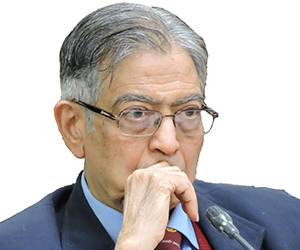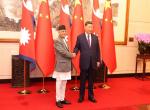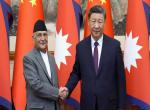It is understood that the India-Pakistan back channel talks have been reactivated and are underway. It may be recalled that this back channel was initiated at the beginning of the UPA regime in 2004 and was in operation all along until its disruption following the Mumbai attack of November 2008. The main focus of the back channel dialogue, initially conducted by Mr. J.N. Dixit and Mr. Tariq Aziz and later by Mr. S.K. Lambah and Riaz Mohammad Khan, was the settlement of the Kashmir issue and accordingly Musharraf’s four point proposal in this regard occupied centre stage.
The resumption of the India-Pakistan back channel at this stage though quite uncalled for is not surprising as Dr Manmohan Singh is known to be notoriously soft on Pakistan. Not only did he refrain from taking any penal action against Pakistan for its involvement in several terrorist actions against India, including the aforesaid Mumbai attack, but it was also under his aegis that the infamous Sharm el Sheikh India Pakistan joint statement of July 16th 2009 was issued which asserted that “Action on terrorism should not be linked to the composite dialogue process and these should not be bracketed.” Furthermore, he allowed this joint statement to contain a reference to terrorist threats faced by Pakistan in Baluchistan---- a first for any India-Pakistan document !!
Resumption of the India-Pakistan back channel dialogue is unfortunate for a variety of reasons some of which may be enumerated as follows:
- Firstly, it eases the pressure on Pakistan to shut down the infrastructure of terror directed against India as it suggests that relations between the two countries have achieved a measure of normalcy. Regrettably, this is not so since Pakistan has given India no satisfaction on the issue of terrorism and since it misses no opportunity to try and do India down in every conceivable way. In this context, one need only refer to the fact that it continues in its export of terrorism and fake currency to India, its pursuit of an India centric nuclear weapon development programme, its opposition to India’s quest for a permanent seat in the UN Security Council, and its military and political linkages with China which are clearly directed against India. In these circumstances, it is grave error to send out signals that there has been a normalization of ties with Pakistan, particularly at a time when the rest of the world, more than ever before, has begun to accept that Pakistan is the fount of terror.
- Secondly, it goes against the grain of repeated assertions made by the government that a resumption of the dialogue process with Pakistan would only take place after the latter gave us satisfaction on terrorism and in particular brought the perpetrators of the Mumbai attack to book. Indeed, the Prime Minister himself asserted in Parliament on July 29, 2009 that “Pakistan has to act and act effectively on terrorism before there can be a comprehensive dialogue covering all areas of disagreement or concerns of the two countries”. As regards the back channel dialogue, the External Affairs Minister, Mr. Krishna, following his meeting with his Pakistani counterpart on the margins of the UN General Assembly in September 2009 asserted that “When we have a front channel, there’s no need for a back channel,” adding that India would want more “concrete” actions against the Mumbai terror suspects before agreeing to resume the dialogue. Accordingly, the resumption of the back channel dialogue with Pakistan following our resumption of a comprehensive dialogue on the “front channel” in clear contravention of our categorical statements to the contrary in the matter will convince leaders in that country that India is a soft state and will, therefore, only embolden them to continue to use terror against us in a business as usual mode. As Mumtaz Khan, a migrant from PoK, who runs the International Centre for Peace and Democracy in Toronto, is reported to have stated recently “I don’t know when India is going to learn. Pakistan is smart…it has initiated wars and terrorist attacks. But New Delhi still wants to talk with them.” In a similar vein Senge Sering who heads the Institute of Gilgit-Baltistan Studies in Washington is reported to have stated that “Pakistan is only buying time. India has the memory of a goldfish, which lasts only seven seconds. New Delhi should realize that they are dealing with a State which is not trustworthy.”
- Thirdly, this move will give the Kashmir issue a much higher profile as the back channel is primarily concerned with it. This is obviously not in our interest as the Kashmir issue which is currently dormant will be revived. Pakistan’s meddling in the matter will receive a fillip and secessionists will up the ante in respect of their demands. Indeed, with the revival of the back channel dialogue Pakistan has been quick to invite the Hurriyat leaders to visit Pakistan and to announce that the Kashmir issue should be resolved in accordance with relevant UN resolutions and that Pakistan would continue to extend moral, political and diplomatic support to Kashmir’s struggle for self determination. It is for this reason that India has always avoided, and Pakistan has always sought, to give a high profile to the Kashmir issue. It is sometimes argued that Kashmir is the core issue in India-Pakistani differences and it is, therefore, imperative that it be resolved in order to normalize relations between the countries. This is fallacious. Even if the Kashmir issue is somehow resolved India-Pakistan relations will not be normalized and other differences on issues such as water will be manufactured by the Pakistani military leadership which has a vested interest in maintaining an inimical relationship with India in order to perpetuate itself in power.
Finally, the back channel dialogue with Pakistan on the Kashmir issue centering around Musharraf’s four point proposal which envisages soft borders, demilitarization, devolution, and joint control/joint management, is something that we should never have encouraged as it flies in the face of the unanimously adopted February 1994 Parliament resolution on Kashmir. This resolution categorically called for the vacation of aggression by Pakistan in Kashmir and an end to its use of terror against us. The logic behind the resolution was that Kashmir is an integral part of India and Pakistan has no locus standi in the matter. Any understanding with Pakistan by India on the basis of the Musharraf proposal is, therefore, unlikely to be accepted by the nation.
Published Date: 5th March, 2012










Post new comment